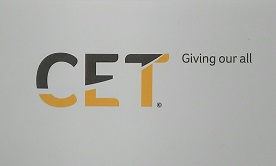Title Page
-
Hazardous Chemicals Storage Checklist
-
Project Reference No.
-
Date of Inspection
-
Contract project Manager
-
Phone
-
Email
-
Inspection Location
-
Prepared by
Chemical Storage checklist
-
Eliminate unnecessary chemicals: Are unwanted chemicals safely disposed and chemicals that are out of date.
-
Correctly dispose of empty containers. Old containers often contain residual chemical that can degrade, generate fumes or react with other chemicals added to the container.
-
Ensure all chemicals are clearly labelled. Clean and reattach labels as necessary and ensure any pipe work or plant that contains hazardous chemicals is identified through a label, sign or other measure.
-
Ensure your register of hazardous chemicals is up to date. Your register must include a list of the hazardous chemicals kept or used on site, as well as their current SDS.
-
Ensure your storage area is clean and organised. Make sure bunds are clear or spill trays are in place and clear. You should get rid of any unnecessary items in the storage area, like combustible materials (wood, rags etc.) that could be fuel for a fire.
-
Inspect storage tanks and containers. Ensure that containers are sealed when not in use and that they are put away correctly. If any containers are leaking or show signs of corrosion make sure you repackage or dispose of the chemicals.
-
Remove any food or personal belongings from the chemical storage area. If food or personal belongings are contaminated they could make someone ill.
-
Remove or manage other sources of risk. Where possible remove ignition sources and machinery that could damage containers. Where necessary protect chemicals from sunlight.
-
Check storage systems. Some chemicals should be stored locked up or refrigerated; others need constant ventilation to ensure hazardous fumes do not build up. Ensure these systems are in place and operating correctly.
-
Check fire-fighting equipment. Make sure your firefighting equipment has been tested recently and is suitable for your chemicals. Where relevant, you should also ensure workers are trained in the use of the fire-fighting equipment.
-
Check spills kits. Ensure there is a suitable way to clean up any chemicals that spill. This includes making sure that workers know what to do if there is a spill or leak.











